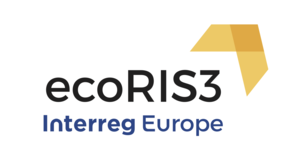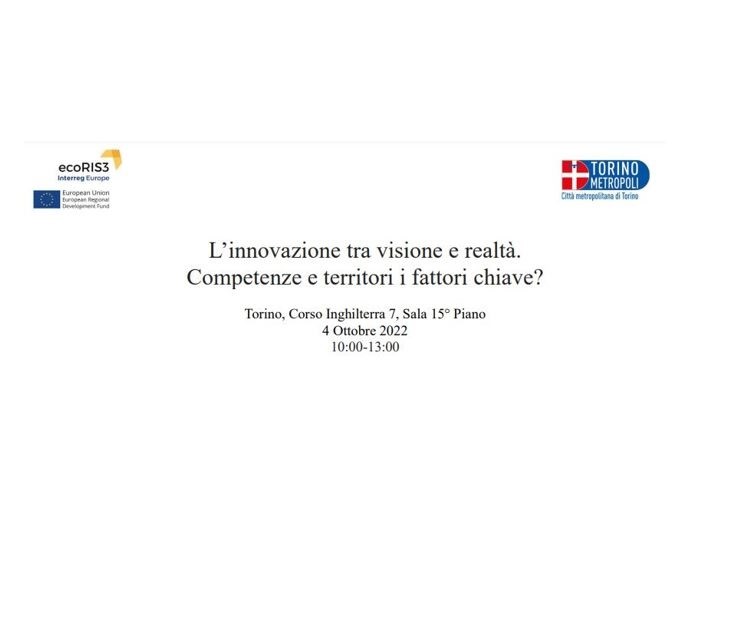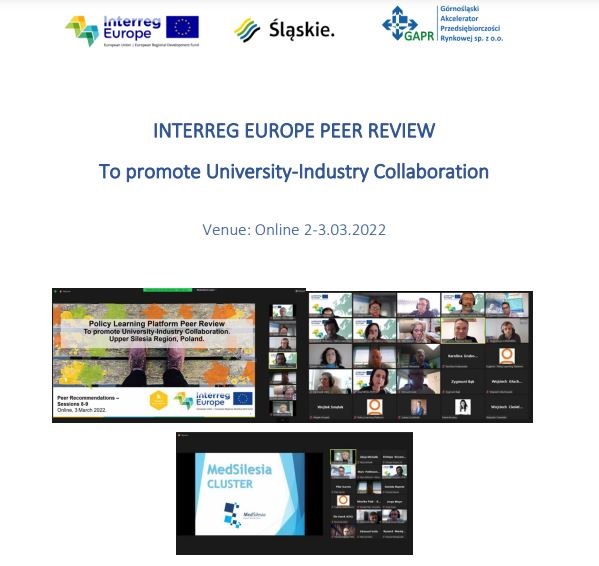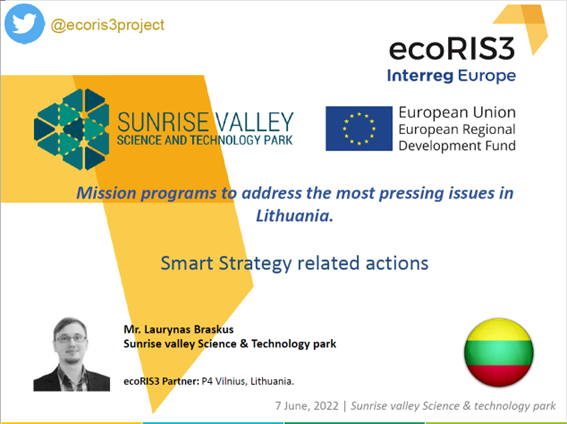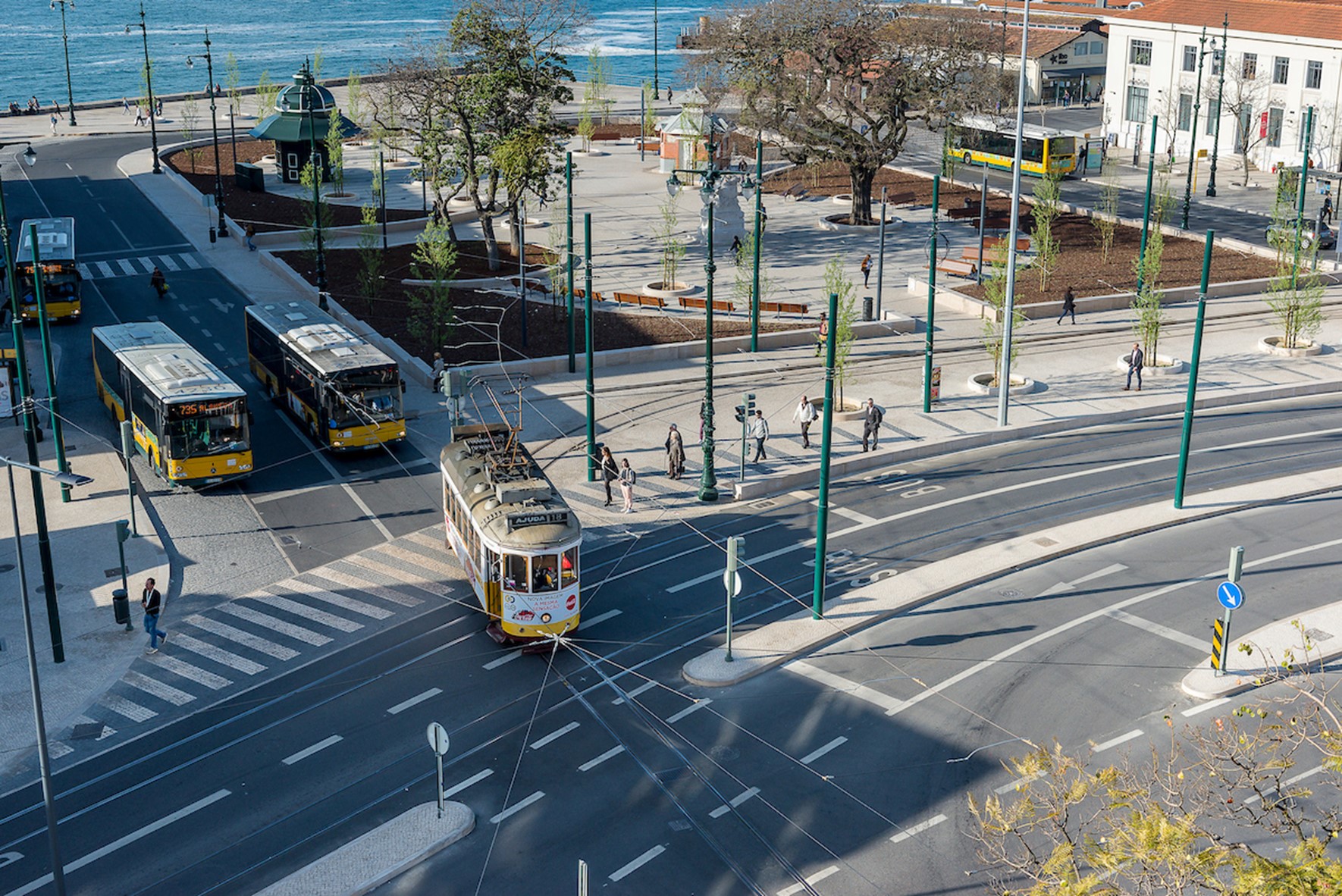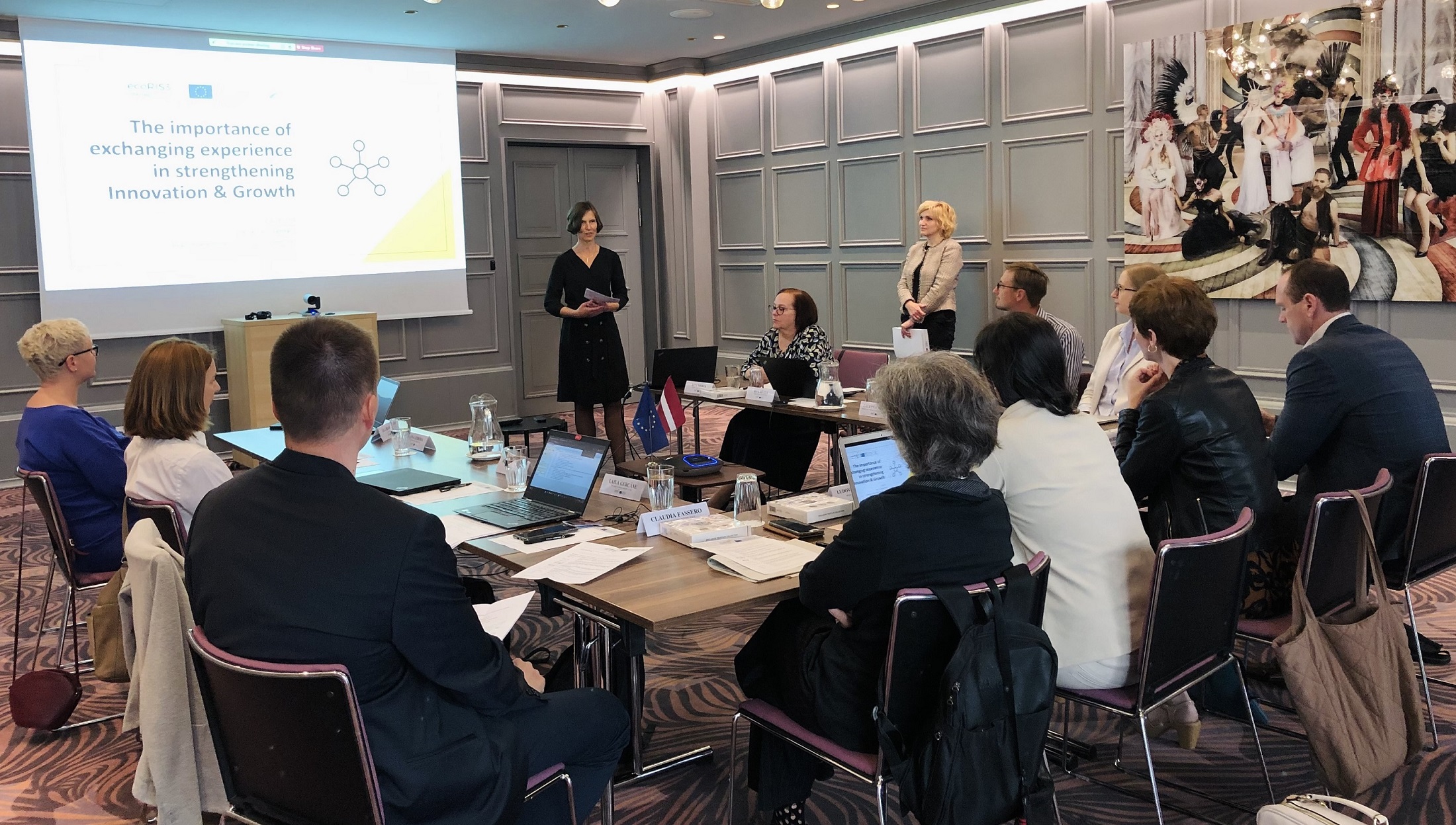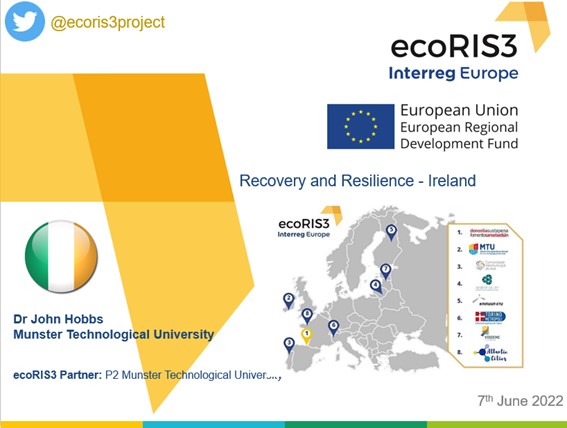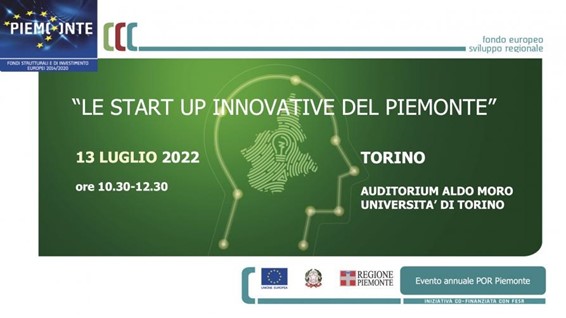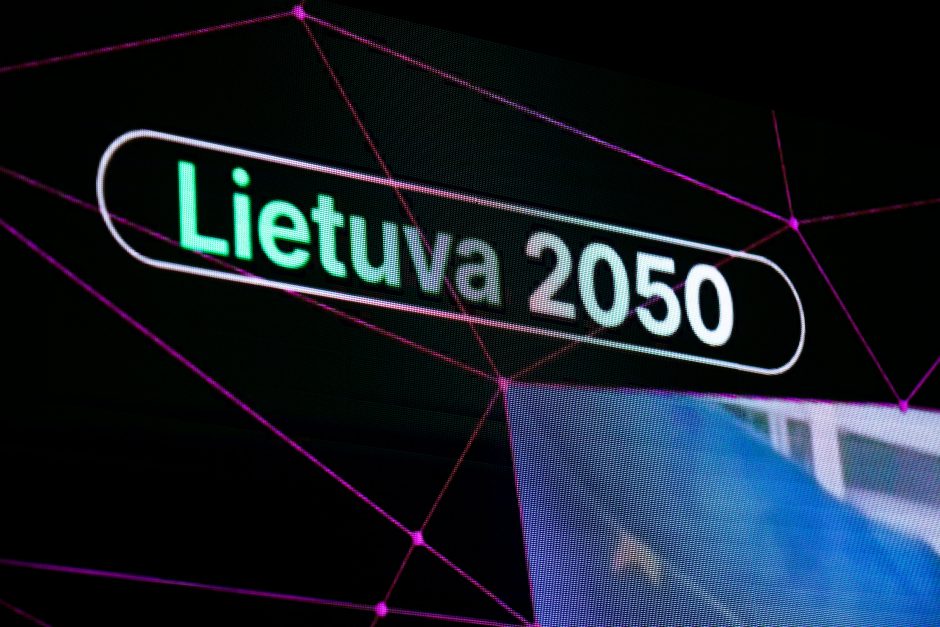The final ecoRIS3 conference has provided fruitful opportunities to exchange experiences and gain insights to try to formulate new responses to emerging global challenges.
As mentioned several times during the group discussion, reskilling and upskilling will be the major common topics of intervention in the upcoming years. Skills and competences are crucial for innovation and are required, in particular, to foster the kind of innovation that is essential for the green and digital transitions to happen. This need of upgraded skills (digital, social and green) concerns the private sector as well as the public one and it is an issue that particularly affects the Italian context, as stated by Ms Claudia Fassero, Head of EU and International Projects at the Metropolitan City of Turin.
In this framework, the Metropolitan City of Turin (CMTo) as a public organization operating in the Piedmont region will follow the path set out in the ESF + Regional Program for the 2021-27 programming period, which intends to offer citizens more and better reskilling and upskilling opportunities along their careers (lifelong learning).
As the discussion continued, several partners highlighted the importance of clustering policies at the local level, as a matter of cooperation between private and public sector. In this framework, it also emerged that the future shared strategy will focus on switching from a sectorial view to an ecosystemic one. The Piedmont Smart Specialisation Strategy 2021-2027 intends to undertake this change by focusing more on the utility that a system aims to produce rather than the final good, as an effective way to boost intersectoriality and transversality.
To stay on the subject of clusters and concerning innovation, it was also stressed how municipalities and regional administrations – more generally, territorial entities – need to operate as “orchestrators”, by fostering fruitful synergies among all relevant local stakeholders (academia, research institutes, businesses, including SMEs and start-ups, venture capital funds, etc.).
The Metropolitan City of Turin can be considered to represent the actor that is best suited to exercise that role, due to its proximity to the actors involved in the regional innovation ecosystem. Proximity is indeed another key factor in innovation – so much so, that innovation clusters or hubs operate on the basis of this exact premise (that proximity actually makes a difference). Furthermore, exercising this role is a way for the Metropolitan City of Turin to carry out its strategic mission of “being an engine of economic and social development for local areas”, as already declared in CMTo’s ecoRIS3 Action Plan.
Such an understanding of territorial entities, including CMTo, as “orchestrators” of innovation is embedded in the ecoRIS3 Action Plan that the Metropolitan City has been implementing – as the nature of the Actions it includes clearly demonstrates. Action I (“One single strategic direction for the local S3 entrepreneurship ecosystem”), for example, consists in improving the governance of the regional innovation ecosystem, increasing coordination between the wide variety of actors it involves, as well as in promoting better coordination of the various initiatives that are aimed at it and that arise from different governance levels. Action I was indeed identified as necessary after a need for a better organization of the innovative ecosystem (with more precise and clearly communicated objectives, identified after an appropriate dialogue with the actors and implemented through a precise plan and timeline) emerged from the SWOT analysis that was carried out in the region. Action II also implies an orchestrating role on the part of CMTo, since it focuses on supporting networking between local enterprises and research and higher education centres – hence, on facilitating more frequent and fruitful contacts between the business sector, on one side, and the academic and research sector, on the other. The aim of Action II, in other words, was that of supporting the local innovation ecosystem by improving the connections between research and business.
Treasuring the above, in the near future the Metropolitan City of Turin will continue to pursue innovation-related development objectives, as already declared in its new Strategic Plan 2021-2023, in Piedmont Smart Specialisation Strategy 2021-2027 and in ESF+ Regional Program 2021-2027.
For further information contact: Claudia Fassero, Head of EU and International Projects at Metropolitan City of Turin ([email protected])
